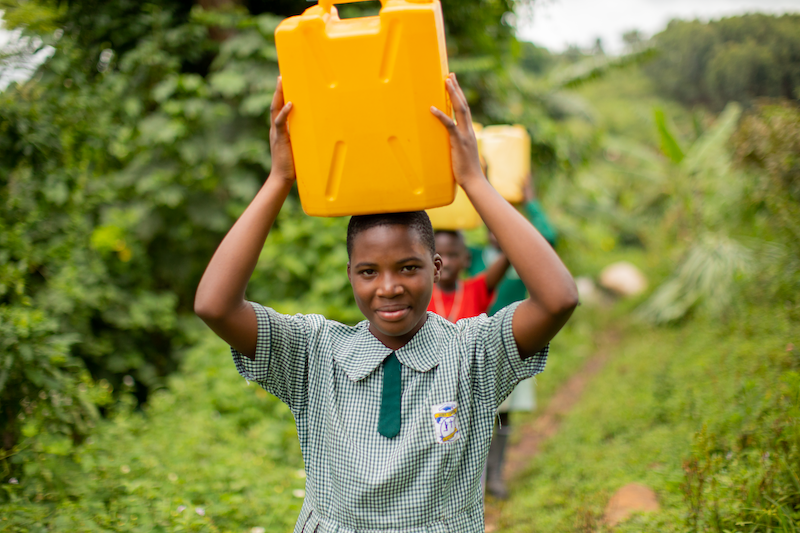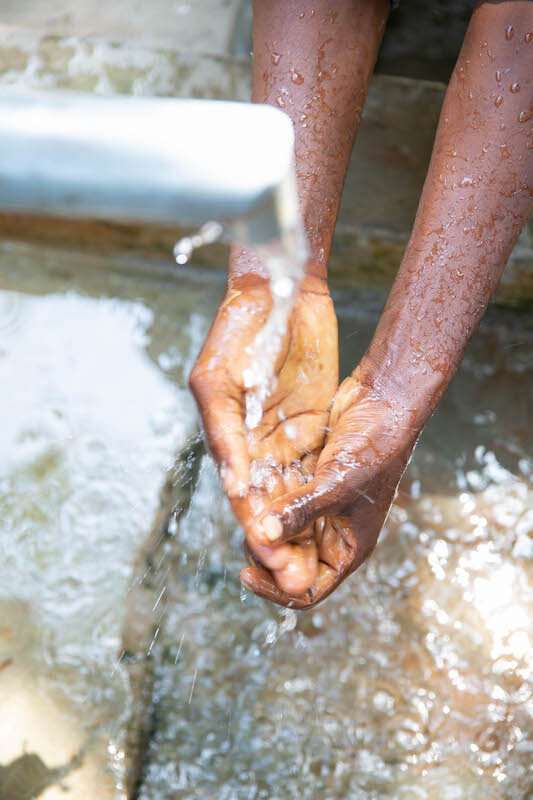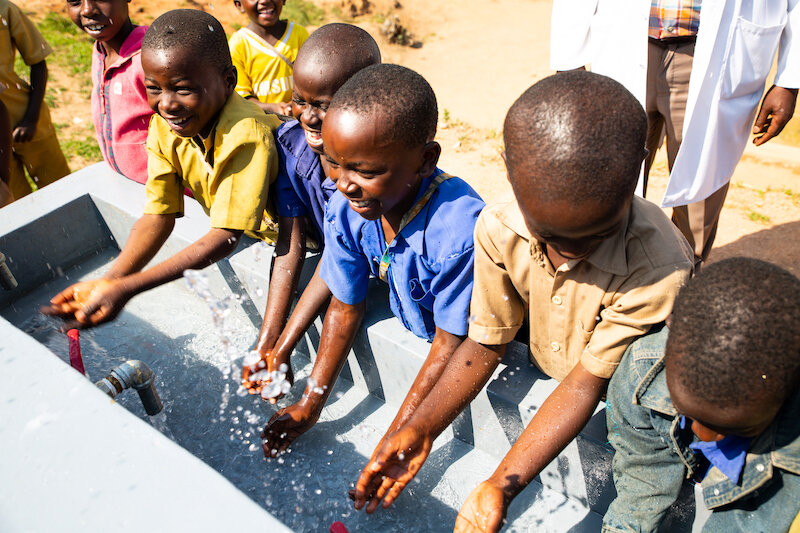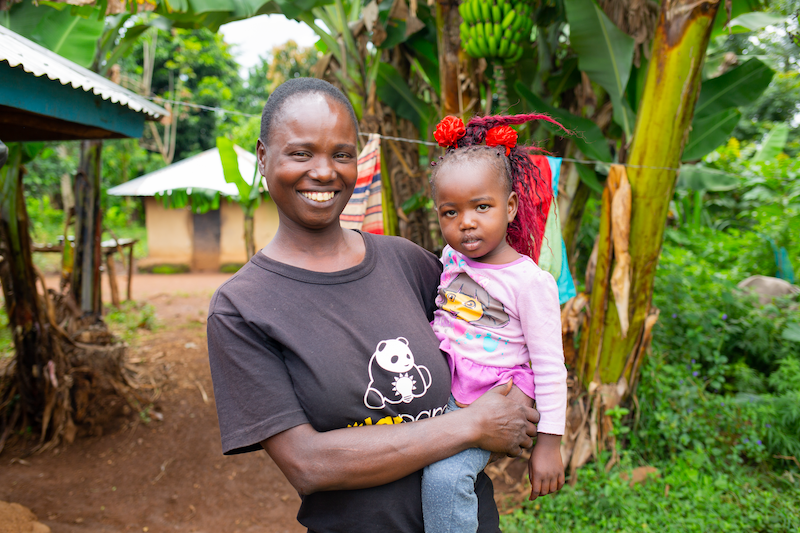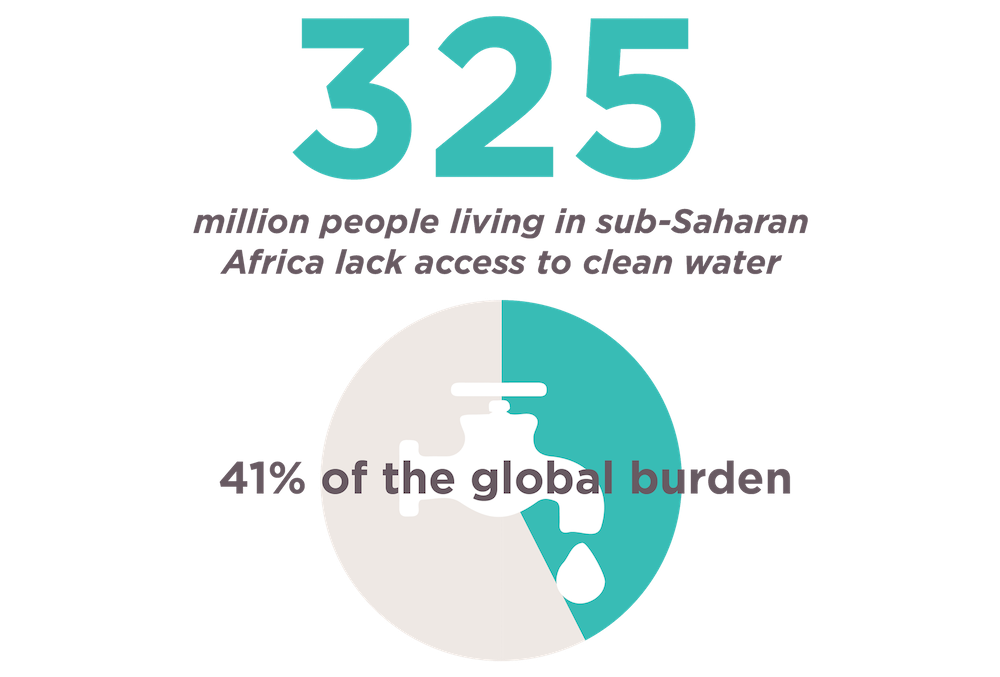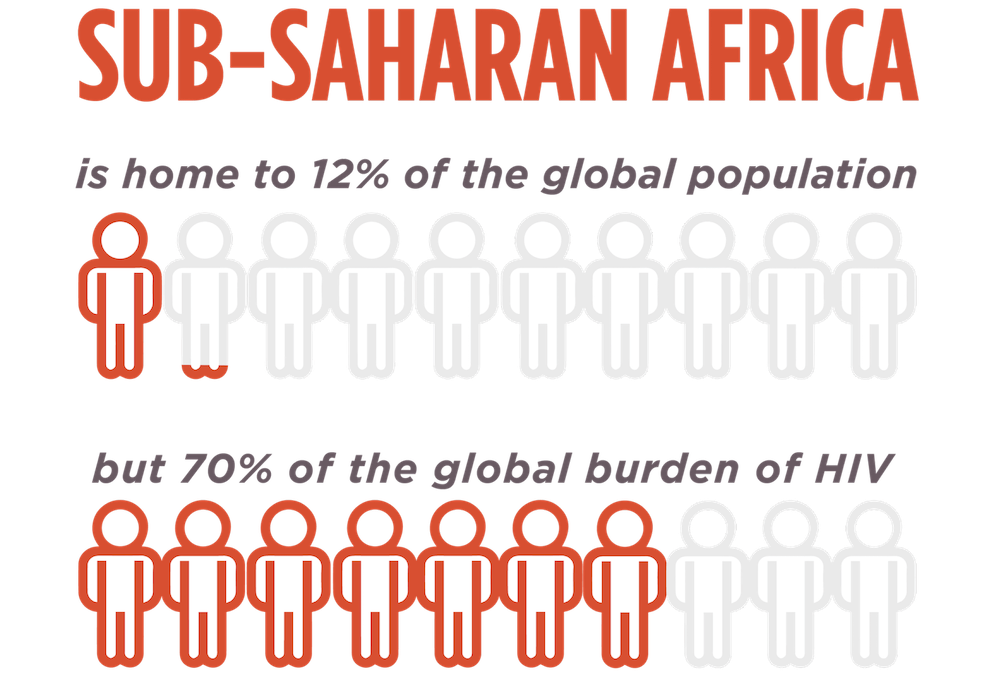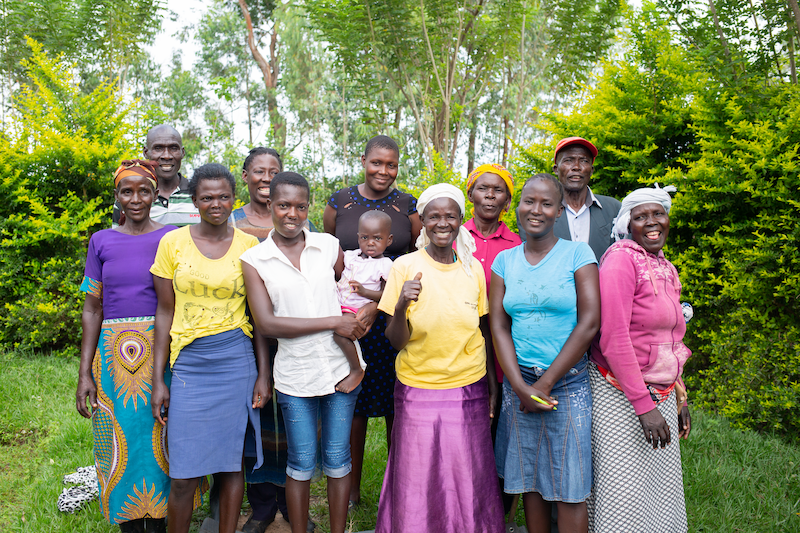Our work of partnering with grassroots African organizations to address the water and HIV/AIDS crises changes lives forever. We do it because we believe that everyone deserves access to basic human rights, no matter what circumstances they were born into. In this article, we will be exploring the United Nations’ Sustainable Development Goals, how they tie in with human rights work, and how Blood:Water’s work ties in with both.
The Global Community
At Blood:Water, it is critical that we serve our partners well, and that means closely examining our approach and practices to ensure that they are mission-aligned. We use internationally-recognized standards as our guide, knowing that they are based on current best practices in the field.
One of these standards that we derive a lot of inspiration from is the Universal Declaration of Human Rights. Here’s the line that sums it up best:
>
“Whereas recognition of the inherent dignity and of the equal and inalienable rights of all members of the human family is the foundation of freedom, justice and peace in the world, … in the dignity and worth of the human person and in the equal rights of men and women and have determined to promote social progress and better standards of life in larger freedom.”
We are committed to upholding this belief in common human rights where we work in sub-Saharan Africa, so that we can be a part of recognizing dignity, creating equality, and propelling social progress.
Sustainable Development Goals
So what is our role in the global community to help provide everyone with access to their basic human rights? To answer that, we’ll explain how we work with our partners to meet the UN’s Sustainable Development Goals. These goals were adopted by the member nations of the UN in 2015 to “end poverty and other deprivations” while improving the circumstances of those in need of life-changing assistance by 2030.
Our work focuses on ten of the goals set by the UN, as they are goals that tie in directly with our mission to fight the HIV/AIDS and water crises in sub-Saharan Africa. Here are the four categories that our main UN development goals fall into.
Health
The most obvious goals that we are working towards completing are health and well-being (#3), clean water and sanitation (#6), and education (#4) for all.
Our partners work tirelessly to provide treatment and support for those affected by HIV/AIDS and those who do not have access to adequate water, sanitation, and hygiene. Every water point that is implemented comes with the creation of a WASH committee so that the community will spread the knowledge of how important sanitation and hygiene are not only to the water point’s success, but to the entire community’s long-term health!
Like those with compromised immune systems due to HIV/AIDS status, children are also especially susceptible to water-borne, preventable illness. In addition, the burden of gathering water for the family often falls disproportionately on women and girls. These young people are often forced to drop out of school or may even lose their life because of something as simple as water. So water does have a serious impact on access to education!
Even with the introduction of COVID-19, our partners’ community health workers still continue to venture into the communities to make sure that these human rights are still met and reaching more people than ever.
Poverty
The UN Goal #1 for no poverty and Goal #2 for zero hunger actually tie in very closely with our mission. 70% of the world’s poorest communities are located in sub-Saharan Africa, where our partners work. And poverty is a major barrier to accessing life-saving HIV treatment and care. Furthermore, children in sub-Saharan Africa are fifteen times more likely to die before the age of five than children in higher income countries. Given that highly preventable waterborne illness is a leading cause of death for children under the age of five, our mission to address the water and HIV/AIDS crises in sub-Saharan Africa ties in directly.
Access to clean water, sanitation, and healthcare are essential human rights, and we strive to ensure that no matter a person’s financial situation, they are able to receive the care they need.
As mentioned before, inadequate water and sanitation can lead to a serious gap in education. Providing families with access to these health supplies helps to break the cycle of poverty, as it allows children the opportunity to go to school and create brighter futures for themselves.
Another problem that access to safe water can solve is hunger, since it enable people to grow crops for their families to live healthily. Building up nutrition and strength makes a big difference for children and parents who want to work hard for their families but otherwise may be sick or weak from their circumstances. Our WASH (water, sanitation, and hygiene) partners often address nutrition concerns as a part of their holistic approach to empowering communities.
Equality
UN Goals #5 and #10 address gender equality and reducing inequalities. We’ve already discussed the ways in which the water crisis disproportionately affects women, girls, and children. It also disproportionately affects people living in rural and underdeveloped areas that are already under economic stress. We focus our work in sub-Saharan Africa because the HIV/AIDS and water crises are especially rampant in this part of the world, and we believe that everyone has the right to have their basic needs met.
One of the ways that our partners approach the HIV/AIDS crisis holistically is in their creation and fostering of HIV support groups, among other services for those affected. HIV disproportionately impacts young women and other vulnerable groups. But our partners work tirelessly to ensure that information about prevention and treatment is dispersed throughout their communities; not just to the wealthiest. By creating ways for people living with HIV to share their experience with others in support groups, they are able to receive support, encouragement, and critical knowledge about how to live a healthy, normal life with HIV.
Partnership
Some of the most important goals to our mission are creating sustainable communities (#11), peace, justice, and strong institutions (#16), and partnerships for these goals (#17). We partner with African organizations because we want to create sustainable solutions for communities to facilitate lasting change for generations to come. We want to interact with these communities in a dignifying and empowering way, because we recognize that we are not the heroes – there are heroes already living in these areas. Our job is to uplift and empower them so that together, we can propel positive and sustainable change in their communities.
We strive to help our partners become stronger, because we know that they have the ability to make a difference that we never could with our outsider’s perspective of the problem. So with their first-hand knowledge, and the expertise of the international community, we know that we can collaborate to make a difference in providing human rights to all.

